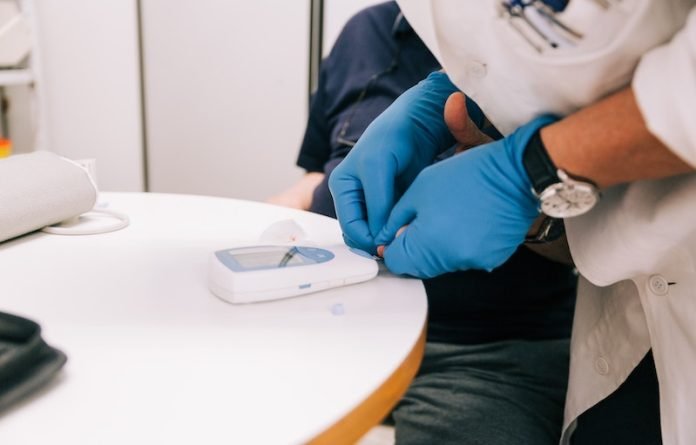
One hundred years have passed since the discovery of insulin, which is a hormone that helps people with diabetes manage their blood sugar levels.
It is a life-saving treatment for many, but sometimes people can have too much insulin, which can be just as dangerous as having too little.
Scientists have been studying how our bodies protect us from having too much insulin, and a team of researchers at the University of California San Diego School of Medicine have made an exciting discovery.
The researchers found a key player in the body’s natural defense system against excessive insulin, which can lead to a condition called insulin shock.
This safety valve is a metabolic enzyme called fructose-1,6-bisphosphate phosphatase or FBP1, which helps control the amount of glucose produced by the liver during sleep and released into the bloodstream.
However, when someone is starved for glucose or carbohydrates, an FBP1 deficiency can lead to severe hypoglycemia, which can cause seizures, coma, and even death.
To better understand the role of FBP1, the researchers created a mouse model with liver-specific FBP1 deficiency that mimicked the human condition.
They found that FBP1 had multiple roles beyond controlling gluconeogenesis, including inhibiting the protein kinase AKT, which is the primary conduit of insulin activity.
This means that FBP1 helps keep AKT in check, guarding against insulin hyper-responsiveness, hypoglycemic shock, and acute fatty liver disease.
The researchers even developed a peptide (a string of amino acids) called E7, which disrupted the association of FBP1 with AKT and another protein that inactivates AKT.
When injected into mice that had become insulin resistant due to a high-fat diet, the peptide reversed insulin resistance and restored normal blood sugar levels.
This discovery could be a game-changer for people with diabetes, as E7 could potentially be used as an alternative to insulin that doesn’t carry the risk of insulin shock.
While there is still more research to be done, this exciting breakthrough could improve the lives of millions of people with diabetes.
How to prevent insulin resistance
Insulin resistance is a condition in which the body’s cells become resistant to the effects of insulin, making it harder for glucose to enter the cells and causing the pancreas to produce more insulin.
Over time, this can lead to high blood sugar levels and eventually to type 2 diabetes.
Fortunately, there are several things you can do to prevent or manage insulin resistance:
Maintain a healthy weight: Being overweight or obese increases the risk of insulin resistance, so it’s important to maintain a healthy weight through regular exercise and a balanced diet.
Exercise regularly: Regular physical activity can help improve insulin sensitivity and lower blood sugar levels. Aim for at least 30 minutes of moderate-intensity exercise most days of the week.
Eat a balanced diet: A balanced diet that is rich in whole grains, fruits, vegetables, lean proteins, and healthy fats can help improve insulin sensitivity and lower the risk of insulin resistance.
Avoid processed and sugary foods: Processed and sugary foods can cause a rapid spike in blood sugar levels, which can contribute to insulin resistance over time.
Manage stress: Chronic stress can increase the levels of cortisol and other hormones that can interfere with insulin sensitivity. Stress management techniques like yoga, meditation, or deep breathing exercises can help.
Get enough sleep: Lack of sleep can disrupt hormonal balance and lead to insulin resistance. Aim for 7-8 hours of sleep each night.
Limit alcohol consumption: Alcohol can interfere with the body’s ability to regulate blood sugar levels, so it’s important to limit alcohol consumption or avoid it altogether.
By adopting these healthy habits, you can help prevent or manage insulin resistance and reduce your risk of developing type 2 diabetes.
However, if you have concerns about insulin resistance or diabetes, it’s always a good idea to speak with your healthcare provider.
If you care about diabetes, please read studies that pomace olive oil could help lower blood cholesterol, and newest type 2 diabetes drugs may lower body weight, blood sugar more quickly.
For more information about diabetes, please see recent studies about Vitamin D that may reduce dangerous complications in diabetes and results showing plant-based protein foods may help reverse type 2 diabetes.
The study was conducted by Li Gu et al and published in Cell Metabolism.
Copyright © 2023 Knowridge Science Report. All rights reserved.



